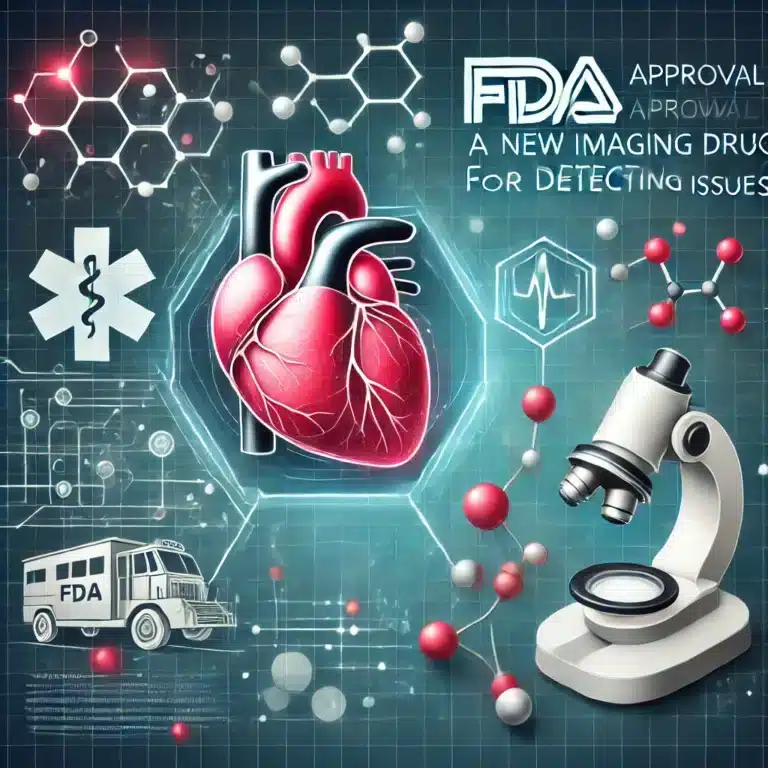Summary
- The U.S. Food and Drug Administration has approved Flyrcado for use in adult patients with known or suspected coronary artery disease to evaluate for myocardial ischemia and infarction.
- CAD is a common condition caused by plaque buildup in the coronary arteries, impacting millions of adults in the U.S. and is the leading cause of death.
- Myocardial ischemia occurs when blood flow to the heart is reduced, leading to decreased heart function and possibly a heart attack.
- Studies have shown Flyrcado to be effective in detecting significant CAD in adults with suspected or known CAD, with varying levels of sensitivity and specificity.
- Common adverse reactions to Flyrcado include dyspnea, headache, chest pain, fatigue, flushing, nausea, dizziness, and irregular heartbeat. Stress tests with Flyrcado carry risks of serious adverse reactions.
The U.S. Food and Drug Administration has recently approved a new diagnostic drug called Flyrcado for adult patients with known or suspected coronary artery disease (CAD). CAD is a common condition caused by the narrowing or blockage of the coronary arteries, leading to reduced blood flow to the heart. Flyrcado, a radioactive drug used for positron emission tomography (PET) myocardial perfusion imaging, is administered through intravenous injection to evaluate myocardial ischemia and infarction.
Two clinical studies were conducted to evaluate the effectiveness of Flyrcado in detecting significant CAD in patients with known or suspected CAD. The results showed promising sensitivity and specificity rates in detecting artery narrowing of at least 50%. However, the drug is associated with common adverse reactions such as dyspnea, headache, and chest pain, and patients undergoing stress testing are at risk of serious reactions such as myocardial infarction and arrhythmia. Healthcare professionals are advised to conduct stress testing in a controlled setting with resuscitation equipment readily available.
In conclusion, the approval of Flyrcado by the FDA provides a new diagnostic tool for patients with CAD to assess myocardial ischemia and infarction. While the drug has shown effectiveness in detecting significant CAD, patients should be aware of potential adverse reactions associated with its use and healthcare professionals should exercise caution when performing stress testing to ensure patient safety.
Cardiology, Radiology


